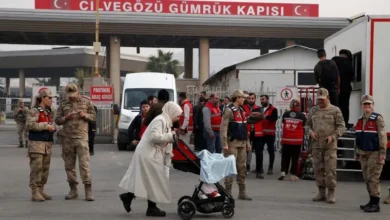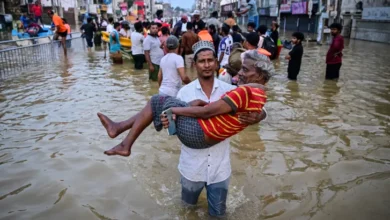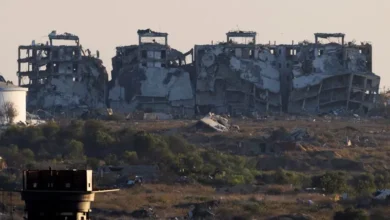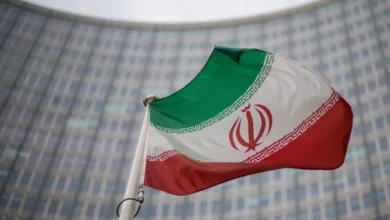Bangladesh curfews, internet blackout batter economy amid quota protests
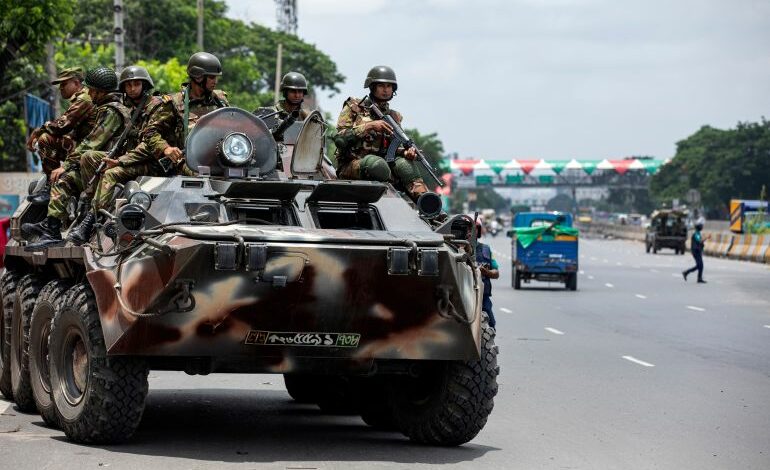
During a nationwide curfew and with the army on the streets, an unlikely group of people gathered at Bangladesh Prime Minister Sheikh Hasina’s office with demands – not student protesters who have been seeking an end to job quotas, but industry leaders.
The country’s top business owners asked Hasina on Monday to withdraw the curfew and restore internet service, which has been down for days as part of a complete communications blackout. They pleaded with her to have the army provide security for the Dhaka-Chattogram highway — the economic lifeline that connects the capital to the country’s main port city — amid fears of vandalism.
Hasina told them her government was forced to impose the curfew and deploy the army across the nation to “save lives and properties of people”. “It [the curfew] will be gradually relaxed,” she said.
But for millions of Bangladeshi workers, business owners and thousands of companies, “gradually” might not be good enough.
For nearly two weeks, student protesters and security forces have been locked in a tense standoff, and violent clashes have killed at least 146 people. The protests started out against quotas — primarily against the 30 percent of government jobs reserved for descendants of people who found in Bangladesh’s 1971 war of independence. On Sunday, the Bangladesh Supreme Court significantly shrunk the quotas, but the students have released a list of eight demands, focused on seeking justice for their comrades killed in the violence. The government-imposed curfew remains in place, as does the internet block.
All of that has brought the economy to a screeching halt amid high inflation and fast-depleting foreign reserves. In the past five days, Bangladesh’s economy has suffered losses amounting to more than $1.2bn, according to an estimate by the country’s business community.
Aside from the shutdown of almost all industries, there were economic losses due to vandalism and arson attacks, including on the country’s lone metro rail system in Dhaka, and the national television network’s premises. Speaking to business leaders on Monday, Hasina blamed the internet blackout on opposition parties, alleging that their activists had ruptured internet cables across the country. She promised the internet connections would be restored soon.
Losses mount every day
The shutdown and communications blackout have hit the readymade garment sector the hardest. It is responsible for more than 80 percent of the country’s export earnings of over $50bn.
All factories have remained closed since Saturday due to safety concerns, and the sector is suffering losses of nearly $150m a day, SM Mannan Kochi, president of the Bangladesh Garment Manufacturers and Exporters Association, told Al Jazeera.
“The biggest problem is that our international buyers are losing confidence — a loss whose value can’t be gauged with just money as it will have a long-term negative impact on the country’s most valuable industry,” Kochi said.
Steelmakers have estimated that in the past four days, their sector has suffered a loss of nearly $110m. Suman Chowdhury, general secretary of the Bangladesh Steel Manufacturers Association, said in a statement that because of the curfew, they couldn’t release raw materials from the port, resulting in the disruption of production.
“Also, we didn’t want to put the lives of our workers in risk and asked them to stay at home,” he said.
Production and distribution of pharmaceutical products have also been severely disrupted as medicine makers have been unable to receive imported raw materials from the Chattogram port and Dhaka airport.
“People in the city got habituated to ordering everything online in the past few years. I also ordered most things, including groceries, online, and my daily life has become a struggle now.”
Call centres are facing daily losses of at least $3m per day, Wahid Sharif, president of the Bangladesh Association of Contact Centres and Outsourcing Association, told Al Jazeera.
More than two-thirds of the call centre industry’s revenue comes from serving global companies, and the reputational damage that this industry has suffered because of nearly five days of the ongoing internet blackout is “irreparable,” Sharif said.
Officials at commercial banks said they might have to pay additional interest amounting to millions of dollars because of delays in scheduled payments.
Zunaid Ahmed Palak, Bangladesh’s state minister for information and communication technology, told the media on Monday that the government was aware of the financial losses due to the blackout.
